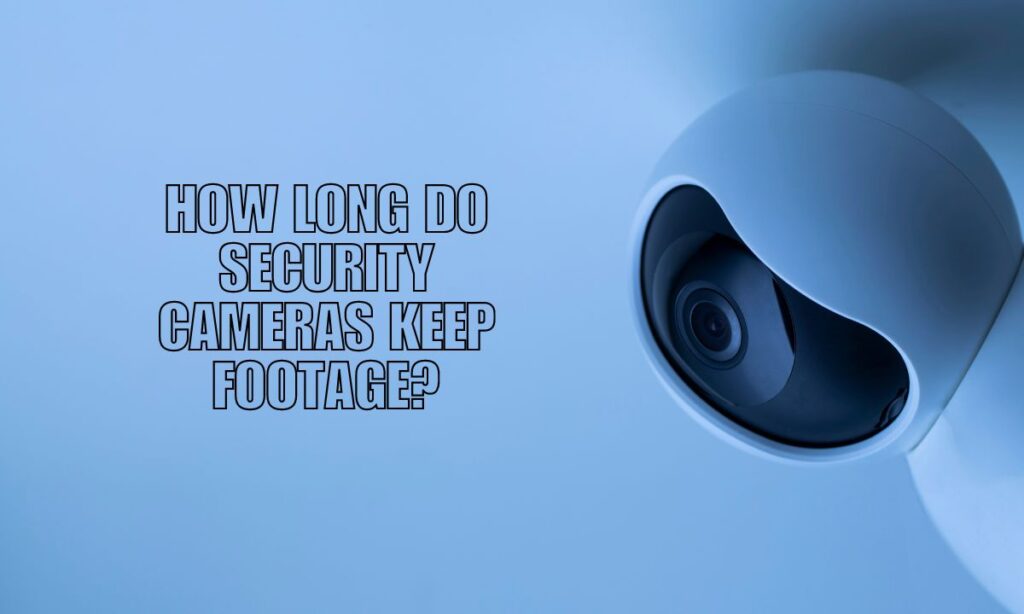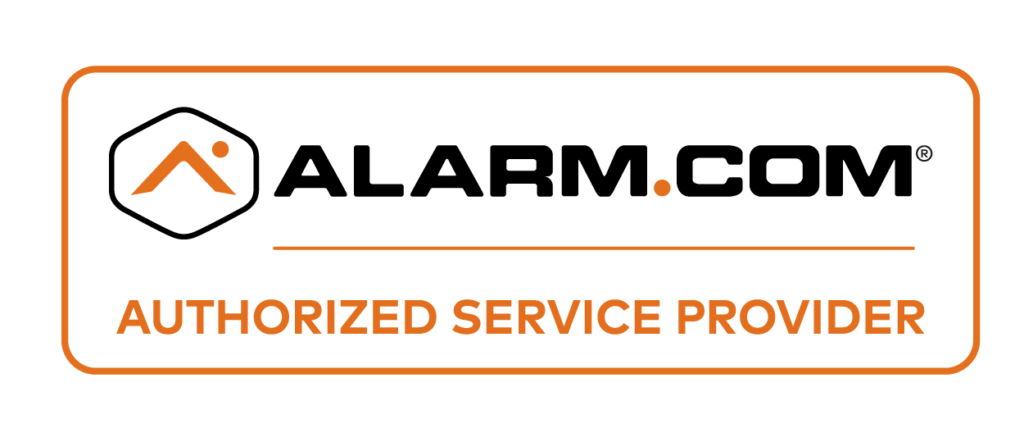When it comes to home security, surveillance cameras play a vital role in monitoring and deterring potential threats. One commonly posed question that arises is, “How long do security cameras keep footage?” In this article, we will delve into the world of security camera storage and answer common questions such as how long security cameras keep footage, the factors affecting storage duration, and the various storage options available.
Importance of Security Camera Footage
Security camera footage serves as crucial evidence in investigating incidents, identifying culprits, and providing a sense of security. Whether it’s for residential or commercial purposes, having a reliable system that stores footage is essential for effective security management.
How Do Security Cameras Store Footage?
Security cameras employ different methods to store video footage they capture. Traditionally, analog cameras were connected to digital video recorders (DVRs) that stored the video on physical hard drives. Modern security cameras, such as IP cameras, often use network video recorders (NVRs) that store the security footage digitally.
These recorders can range from standalone devices to software-based solutions running on dedicated servers or network-attached storage (NAS) devices. Another storage option gaining popularity is cloud storage, where the footage is kept securely offsite on remote servers accessible via the internet.
How Long Do Security Cameras Keep Footage
Security cameras typically keep video footage for varying durations depending on several factors. Most security cameras keep the footage stored for 30 to 90 days, but it can be customized based on individual needs. However, it’s important to note that there is no universal timeframe that applies to all security camera systems. The actual duration depends on factors such as storage capacity, video compression, resolution, frame rate, and recording mode.

Factors Affecting Footage Retention Duration
1. Storage Capacity and Options
The storage capacity of a security camera system directly affects how long footage can be retained. Modern surveillance systems often use digital storage solutions, such as hard drives or network-attached storage (NAS) devices, to store recorded videos. The size of the storage drive determines the amount of footage that can be saved. Factors such as the number of cameras, video quality, and retention period influence the required storage capacity.
2. Video Compression and Quality of the Footage
Video compression also plays a significant role in storage duration. Different compression algorithms, such as H.264 and H.265, can significantly reduce the size of video files without sacrificing quality. By compressing the footage, more video can be stored within the available storage space. However, it’s essential to strike a balance between compression and video quality to ensure that the footage remains usable.
3. Recording Mode and Settings
The recording mode and settings of a security camera system also impact the duration for which footage is stored. Continuous recording mode captures video footage non-stop, utilizing storage space at a steady rate. Event-based recording, on the other hand, triggers recording when motion is detected or specific events occur. Event-based recording conserves storage space by capturing footage only when necessary.
Storage Options for Security Cameras
The storage capacity of security cameras can vary depending on the model and intended usage. Some cameras have built-in storage, typically in the form of removable memory cards, which is suitable for standalone applications. These cameras usually have limited storage capacity and are more suitable for short-term use. Professional-grade security camera systems often rely on external storage devices like DVRs, NVRs, or cloud storage services.
DVRs and NVRs offer more extensive storage capabilities, allowing for longer retention periods. These devices are designed specifically for video surveillance, offering advanced features such as motion detection, scheduled recording, and remote access. Cloud storage, on the other hand, provides the convenience of accessing and managing footage from anywhere with an internet connection. It eliminates the need for physical storage devices, but it’s important to consider factors like internet bandwidth and subscription costs when opting for cloud storage.
Tips for Maximizing Storage Duration
To make the most of your security camera’s storage capacity, there are several best practices you can follow. Adjusting video settings can have a significant impact on storage duration. For example, lowering the resolution or frame rate of the footage can reduce the file size, allowing for more extended storage. Enabling motion-triggered recording ensures that the camera only captures video when there is activity, reducing the amount of redundant footage.
Implementing efficient storage management techniques is also crucial. Some systems allow for the automatic deletion of old footage to make room for new recordings. It’s important to strike a balance between retention periods and available amount of storage space, ensuring that critical footage is retained while non-essential footage is deleted in a timely manner.
Extending Storage Duration
If you need to retain surveillance footage for longer periods, there are several storage devices to consider:
1. SD Cards and Local Storage
Some security cameras offer built-in SD card slots, allowing footage to be stored locally on removable memory cards. This can provide an additional storage option and extend the retention duration. However, SD cards have limited capacity, so regular maintenance is necessary to ensure uninterrupted recording.
2. Cloud Storage Solutions
Cloud storage has become increasingly popular as a secure and convenient option for storing surveillance footage. By leveraging cloud-based services, you can offload the burden of managing local storage and extend the retention duration without the need for physical hardware upgrades. Cloud storage also offers the advantage of remote access to footage from anywhere with an internet connection.
Do Home Security Cameras Record All the Time?
No, home security cameras do not record all the time by default. The recording behavior of security cameras can be customized based on the specific camera system and its settings. Some cameras offer continuous recording, where they capture footage 24/7, while others utilize motion-activated recording, which only starts recording when motion is detected within their field of view. The choice between continuous recording and motion-activated recording depends on personal preferences, storage capacity, and specific security requirements.
Do Home Security Cameras Delete Footage?
Yes, home security cameras can delete footage based on various factors such as storage capacity, retention duration settings, and storage management policies. When the storage becomes full, some camera systems employ loop recording, which overwrites the oldest footage with new recordings.
Homeowners can customize the retention duration of footage before it is automatically deleted. Additionally, manual deletion of specific footage is also possible. Cloud-based storage solutions may have different retention policies and offer the ability to download and save important footage before deletion. It is important to review the camera system’s settings and consider storage needs to ensure footage is retained for the desired duration.
Conclusion
Knowing how long home security cameras keep footage is essential for effective security management. Factors such as storage capacity, video compression, recording mode, and settings influence the retention duration of surveillance camera footage. By understanding these factors and choosing the right storage options, you can ensure that your security system maintains a sufficient duration of recorded footage for your specific needs.
If you’re looking for a reliable security camera system provider in Atlanta, consider Callaway Security. With our expertise in the field and a wide range of high-quality home security systems, we can assist you in choosing the right cameras and storage options for your needs. Contact Callaway Security today to enhance the safety and protection of your property.









